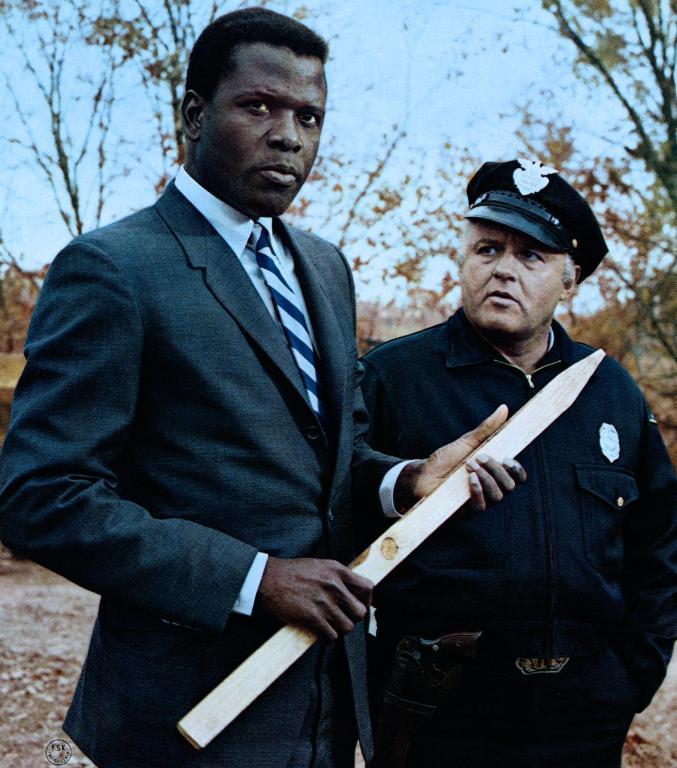I couldn't help picturing actor Sidney Poitier in my mind while reading John Ball's 1980 novel Then Came Violence. That's because this is one of the seven novels Ball wrote featuring his black police officer Virgil Tibbs, whom Poitier played in In the Heat of the Night, one of the best movie mysteries of all time, and two lesser films, They Call Me Mr. Tibbs and The Organization. Sometimes characters as portrayed in movies seem totally different from the same characters described in novels, but not so Virgil Tibbs. Sidney Poitier got the part down perfectly, even if the screenwriters took some liberties, making Tibbs come from Philadelphia, not Pasadena, Calif., in In the Heat of the Night and from San Francisco in the sequels and, in one of the later movies, giving him a wife he doesn't have in the novels.
The lack of a wife is important in Then Came Violence. Tibbs comes home from a vacation to find all his possessions have been moved, without his knowledge, from his apartment to a suburban house. When he gets to the house, he finds he has a beautiful wife and two children he has never met before. His new family turns out to be that of the president of an African country on the run for his life. The president's wife and kids have been placed in Tibbs's care for their protection, which doesn't make a lot of sense because Tibbs works such long hours on his job he is rarely home. Nor does it make sense that the trusted officer wasn't briefed about all this ahead of time.
Tibbs is prevented from spending more time with his temporary family by a series of violent crimes, which lead to other violent crimes when a gang of vigilantes appears to be taking the role of judge, jury and executioner. Tibbs takes his job seriously, but never more so than when it becomes personal and the life of another man's wife, whom he has come to love himself, is endangered.
As in the classic film version of In the Heat of the Night, this novel proves to be as much about race as it is about crime. Tibbs is black and his partner is of Japanese descent. Good characters and bad ones are divided equally between black and white. Even though the narrator tells us mixed-race, or salt-and-pepper, gangs are rare, the story gives us not one but two such gangs. Ball may be trying too hard to write an equal opportunity novel. Still it is a terrific story that, even after more than 30 years, still seems timely, as well as exciting.

No comments:
Post a Comment